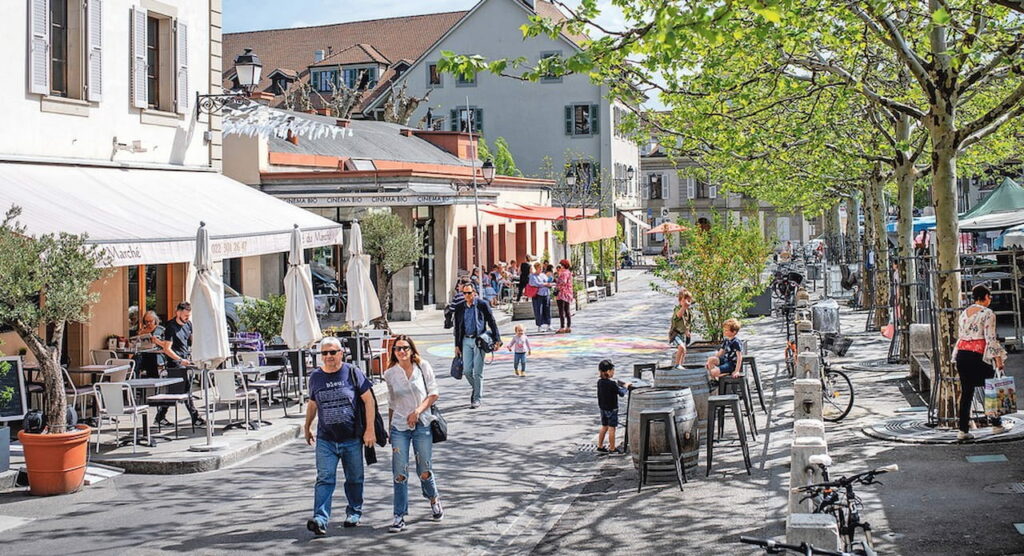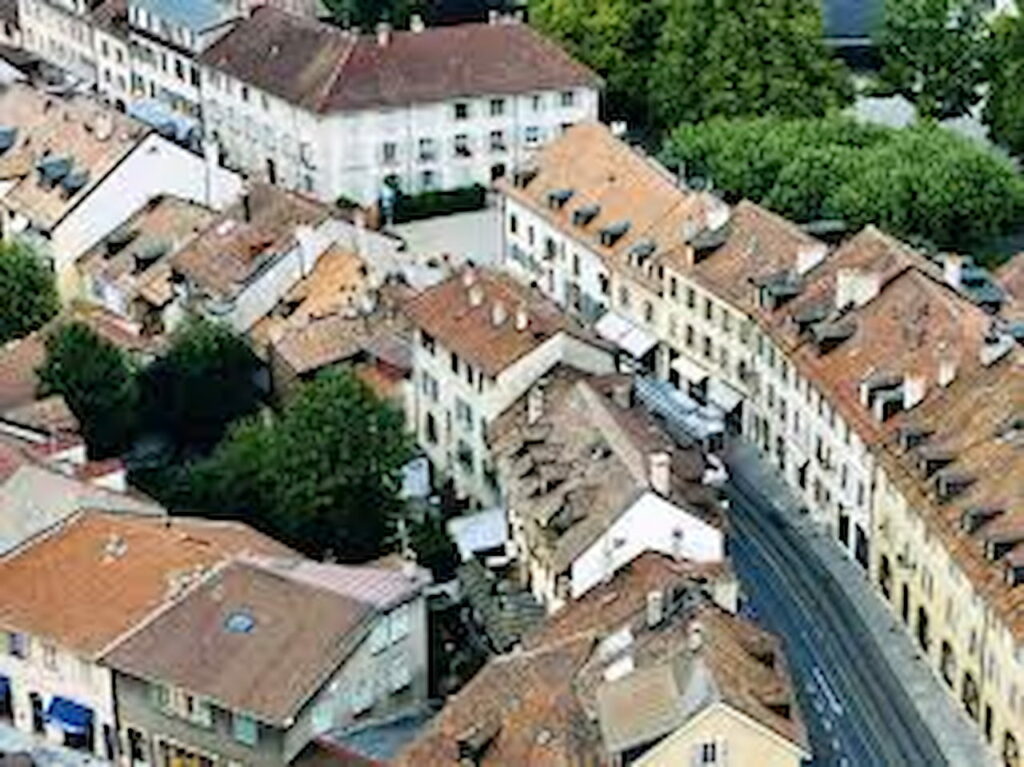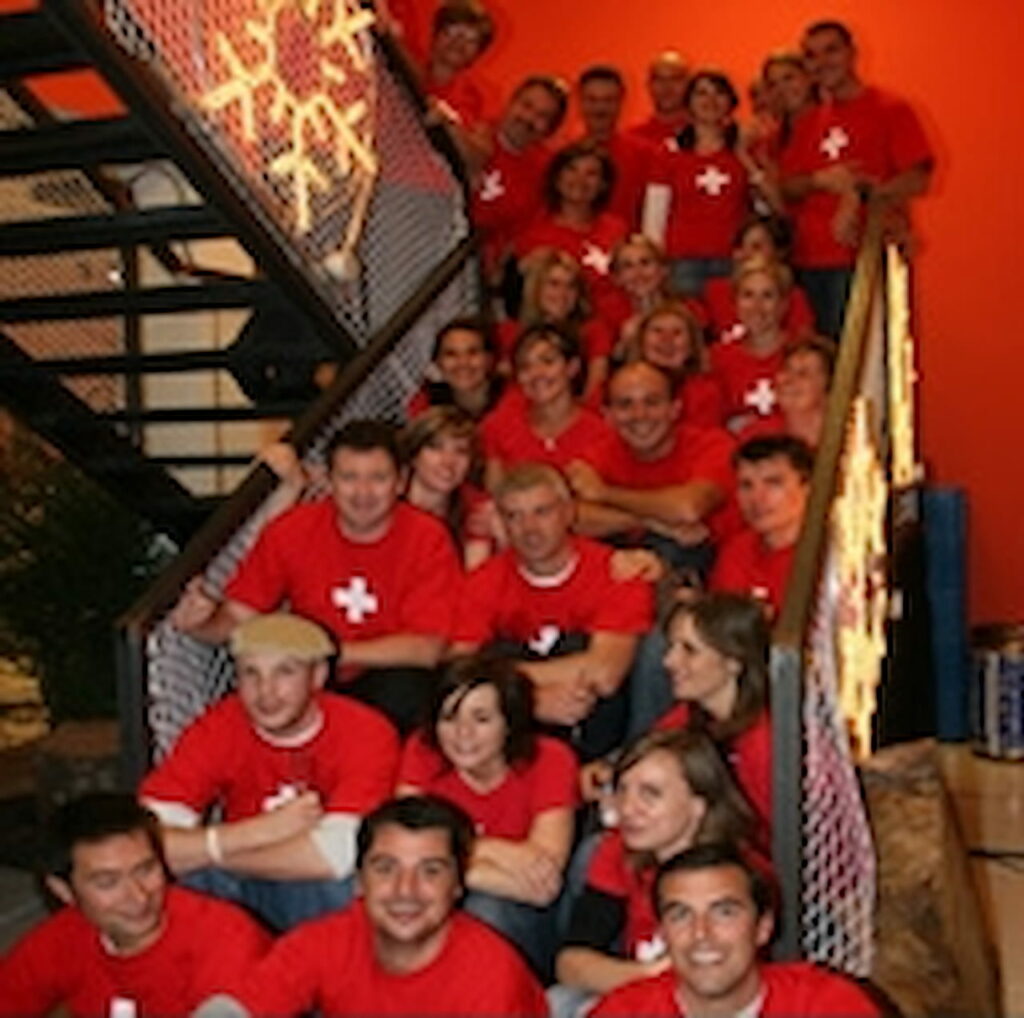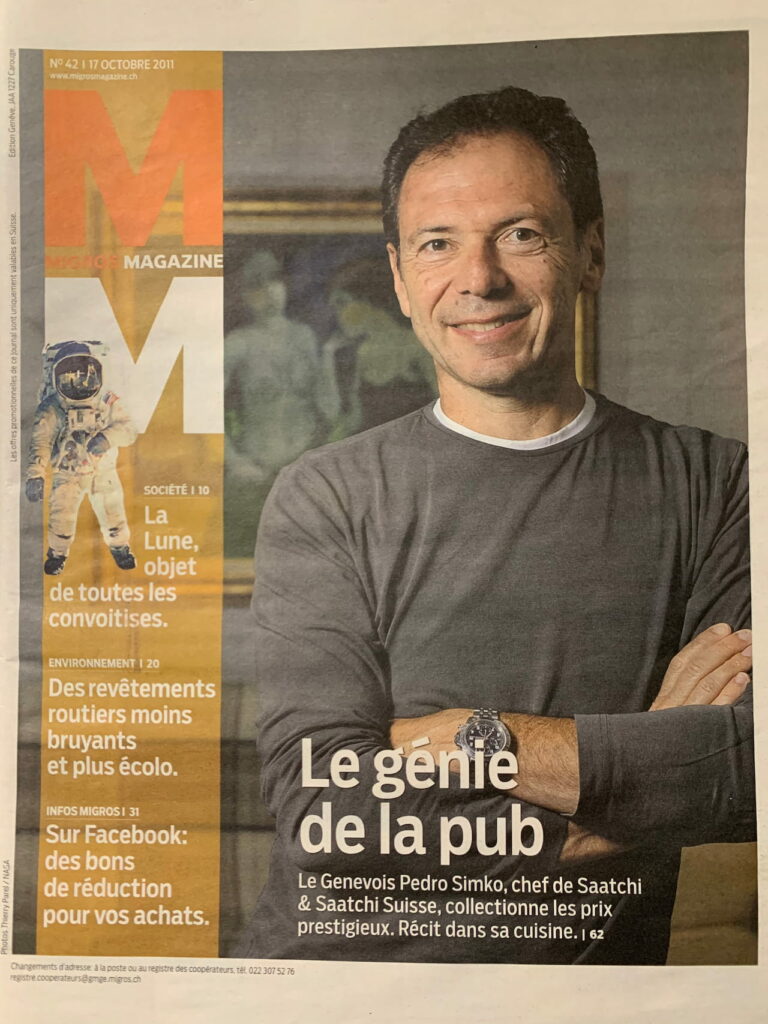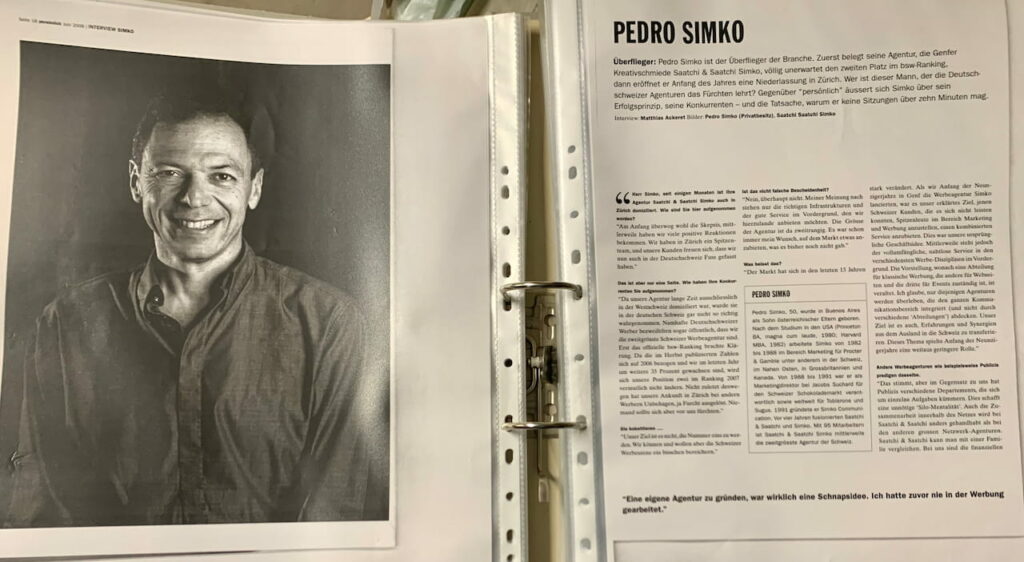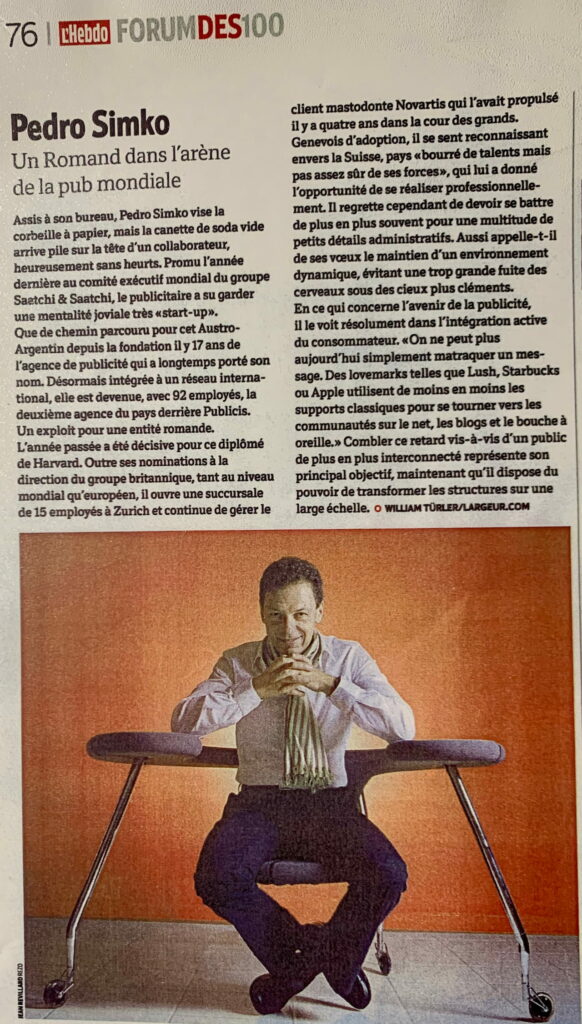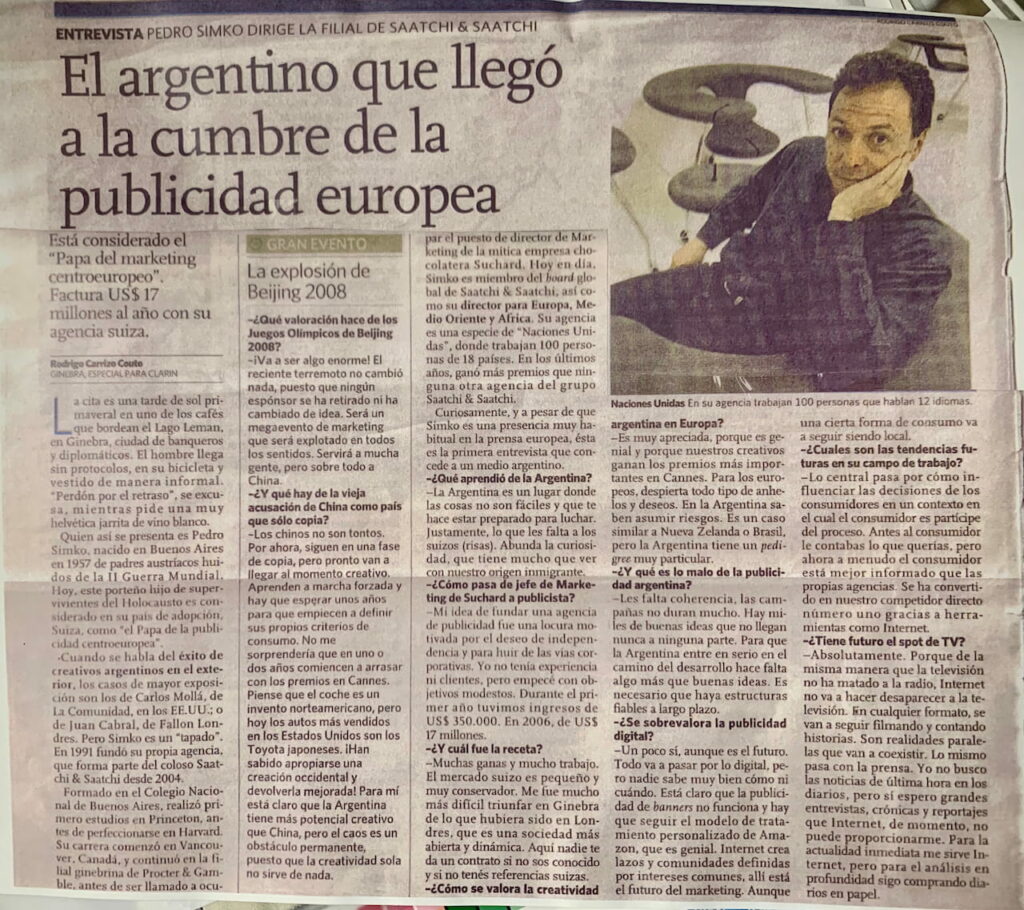Word got out to the press about our big Novartis win, and we became the talk of the town in Switzerland. Dozens of articles began to appear about us, not just in Switzerland, but across Europe.
In 2005 and again in 2006, Saatchi & Saatchi Simko was the fastest growing of Saatchi & Saatchi’s 140 offices worldwide. Novartis made us famous and literally dozens of prospective clients started knocking at our door. We had trouble keeping up—in less than eighteen months, we went from about 25 employees to over 130. We were lucky that just at the time when we were growing so fast, Switzerland had entered into an agreement with the EU which allowed us to hire internationally-experienced personnel without any restrictions.
We moved to beautiful new offices in the old part of Carouge, a bohemian area with lots of antique squares and quaint shops. I started to invest heavily in upgrading our creative output and by the end of my tenure as CEO in 2007, we had won more international awards than any other Swiss agency, a record that to this day has not been equalled.
In 2008, a few days after I had submitted our 2007 business results to the Association of Swiss Advertising Agencies, I received a call from the president. He wanted to know whether the figure he had received was correct. ‘Yes,’ I said. ‘Well,’ he said, ‘we will unfortunately have to audit your books.’ ‘Why?’ I wanted to know. ‘Your agency has gone from position 37 in the rankings to position 2 within just two years. That’s never happened before since we began producing rankings in 1958,’ he said. And it’s never happened that an agency based in the French-speaking part of Switzerland was among the top five Swiss agencies.
The audit confirmed our figures and, after the rankings were made public, the Swiss press really came after us. I gave one interview after another and there were weeks when our agency was quoted in the press every single day! Switzerland’s largest weekly, the Migros Magazine, reaching over 80% of all Swiss households, put me on their front page, accompanied by the title ‘The genius of advertising’. The Swiss advertisers’ magazine ran eight consecutive pages on the story of my life. I was selected as one of Switzerland’s 100 most influential people and even El País, one of Spain’s largest newspapers ran a major article on me, calling me ‘Central Europe’s Marketing Pope’.
Our media exposure was so large, that at one point one of my clients, who had been with us for many years and had become a friend, called me and said: ‘Pedro, you need to calm down—this is Switzerland, not the US, too much media exposure will elicit jealousies and work against you.’ I took his advice to heart and for the next few months, whenever journalists called me, I would say: ‘Don’t you want to interview some of our competitors this time?’ Some journalists did, others didn’t, but my reputation of fair-play was enhanced and over many years thereafter, long after I had left my position of CEO, the press would still regularly call and ask for my opinion on any issue related to advertising. And there never was a competitor who spoke badly either of myself or of our agency.
The River
Pedro Simko

The River
Pedro Simko

